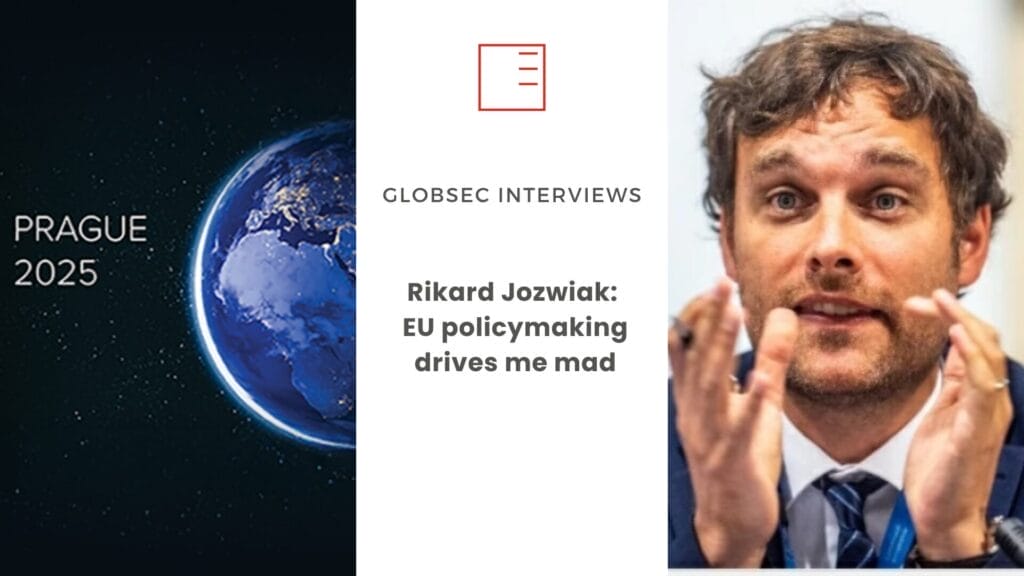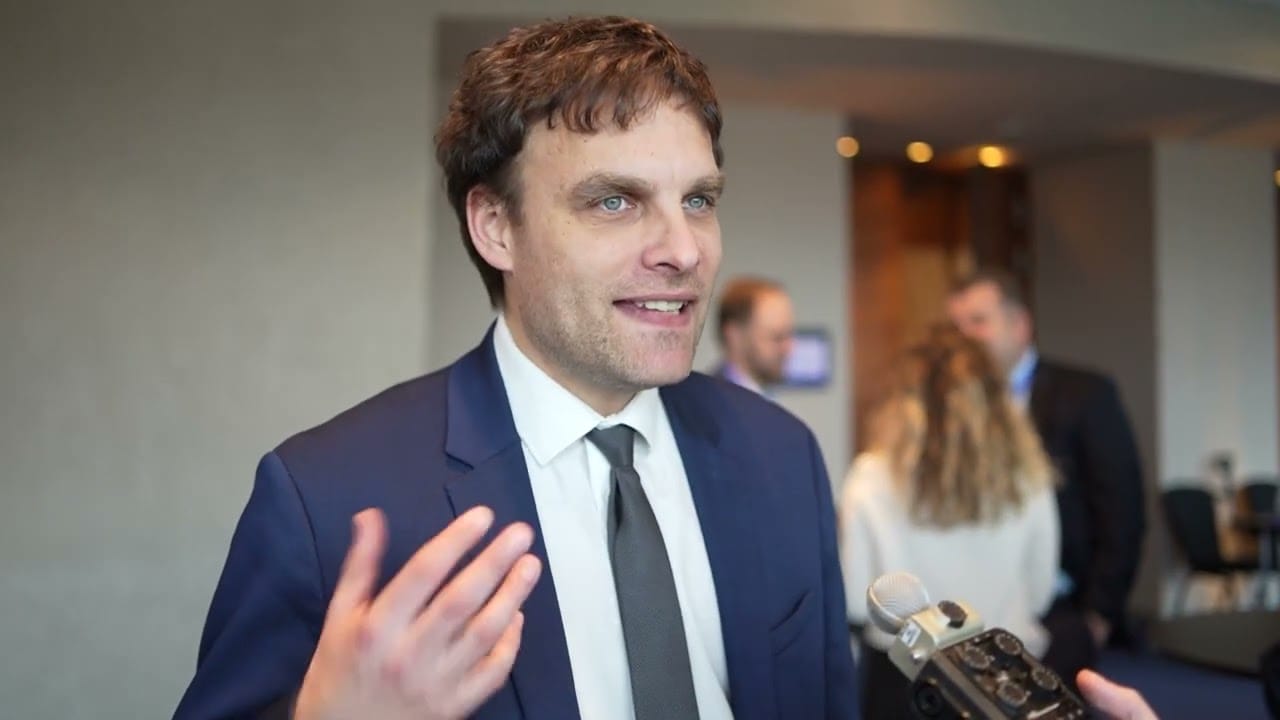Globsec Interviews | Rikard Jozwiak: EU policymaking drives me mad

To follow up on the conference theme Europe's Role in a Changing World, how would you - having reported from both Brussels and numerous European capitals - assess the EU's practical ability to respond swiftly and cohesively to global crises ( from Ukraine to the Middle East )? Would you say the EU’s diplomatic and strategic ‘toolbox’ is keeping pace with the scale of today’s challenges?
The EU is not keeping up at all. Brussels is simply not a player at all in the Middle East, for example. It can do nothing but issuing statements and trying to evacuate its citizen from the wider region. Sure, there could be sanctions but for that you need unanimity, and I don’t really see sanctioning that will have any effect any time soon because of that very reason.
With Ukraine, the EU obviously has a role to play as the country is at the doorstep of the bloc and it can offer Kyiv something (membership, finances, access to EU markets etc). But even here you see that the EU is sidelined when it comes to negotiations on peace/ceasefire. If you don’t have real, hard power, you cannot be at the table making hard decisions. And I don’t see Brussels developing these hard powers anytime soon. Europe is too fragmented and too unwilling to assume such a position.

You’ve covered countless EU summits and major decisions over the years. From your perspective, what is the biggest disconnect between the EU’s stated global ambitions and its actual impact on the world stage?
The EU has honestly not taken too many big decisions at summits in recent years that warrants global attention. Most of them have been very internal, “Brussels” sort of taking decisions that no one outside the bubble would comprehend, like striking a deal with Budapest to prolong its own sanctions or allowing Orban to leave the room so a symbolic decision can be made to allow Ukraine to long journey towards EU membership. It’s exciting for an EU nerd like me, but for most other people this sort of inside baseball rightly flies above their heads. So, EU types think they are taking landmark decisions but outside that circle no one bats an eyelid.
Given your experience covering both NATO and the EU, do you believe Europe is becoming a credible geopolitical actor in its own right, or does it still rely fundamentally on transatlantic frameworks to exert global influence?
Not surprisingly I have to say no. It is not becoming a credible geopolitical actor anytime soon. It still needs America for the serious military business, and it cannot “take on” China seriously on its own, even on economic issues where it is still relatively strong.
What would you say is the greatest challenge for a journalist attempting to make EU policymaking both accessible and engaging to a wider public audience?
That it drives you mad…I have studied EU politics at university and covered Brussels for nearly two decades as a journalist and I still feel I don’t know the entire “beast” yet. Imagine how incomprehensible it has to be for a regular “news consumer” then. As a write you have to make peace with yourself that you will have to be “niche” about your coverage of the EU – I only focus on the enlargement and foreign policy aspects of the EU, for example. And as a reader you have to understand that you need to rely on multiple writers, publications and sources to even attempt to understand the basic of the EU. It takes time and I fear not too many are willing to put down those hours.
In your role as Europe Editor at RFE/RL, how do you view the organisation’s current mission in the struggle over information and democratic values—particularly in regions where press freedom is under sustained pressure?
RFE/RL is probably more needed and relevant than ever. It has always been a surrogate media in regions where free media is either put under heavy pressure on simply not existing at all. Think Russia, Belarus, Azerbaijan and Central Asia. Or just look at our coverage of Iran right now, which top notch and is absolutely essential to understand what is going on in the country. It’s an organization and a mission that has been around for 75 years this year and you cannot replace that easily. If RFE/RL was to disappear, the wider West would need to reinvent something very similar in a few years and it would be very expensive and require a lot of time.





